Books
Empowering Children
2011, William Carey Press, California
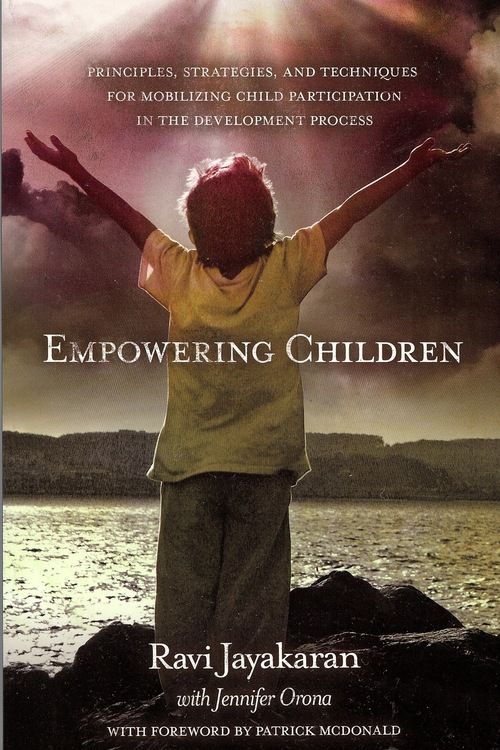
Empowering Children is especially designed for field practioners seeking ways to encourage young people – particularly the marginalized- to become more involved in changing their circumstance. Through dozens of exercises and lessons, the book presents a variety of practical methods for engaging children in the development process – from assessments to Evaluations.
(Click here to Buy this Book)
(Click here to Buy this Book)
Stories of Transformation
December 2006, March 2003
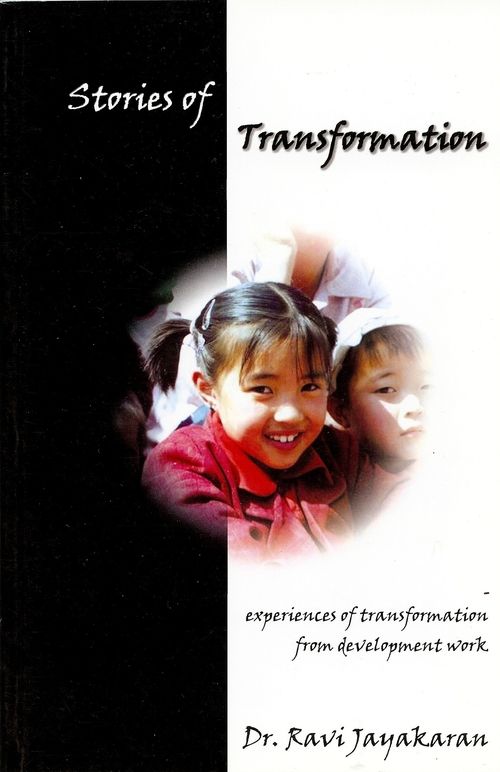
“Transformation is Progressive, Permanent, God intended changeâ€. This book is a collection of many stories of transformation in the lives of individual people and communities that the author recounts from his many years of involvement in development work. It traces significant aspects of transformation to draw lessons from them. Each story is written to be an inspiration in itself and is sure to challenge the reader to engage in similar work.
Facilitating Small Groups
May 2003, World Vision International China Publication
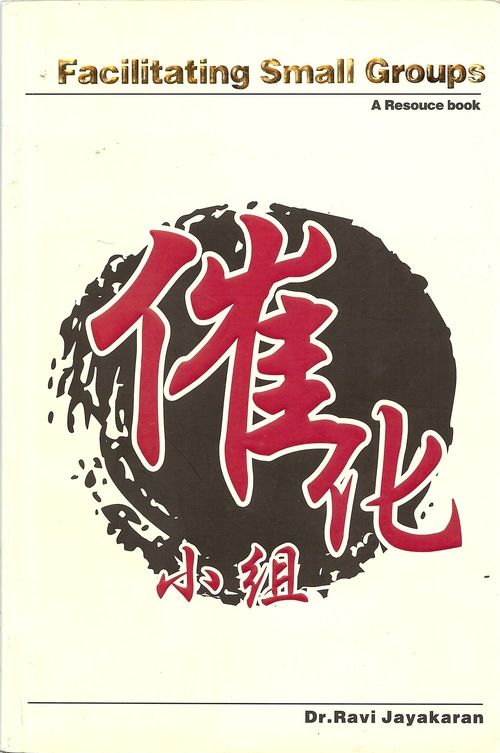
This is a resource book especially written for those in the field working for development programs of various kinds and interacting with special interest groups on health care, HIV/AIDS prevention, Agriculture development, NRM, Animal Husbandry, Literacy, Sponsorship, CEDC, Micro Finance, local self-government etcetra. The book focuses on how to work with and facilitate various groups.
Participatory Poverty Alleviation and Development (Chinese)
April 2003, World Vision International China
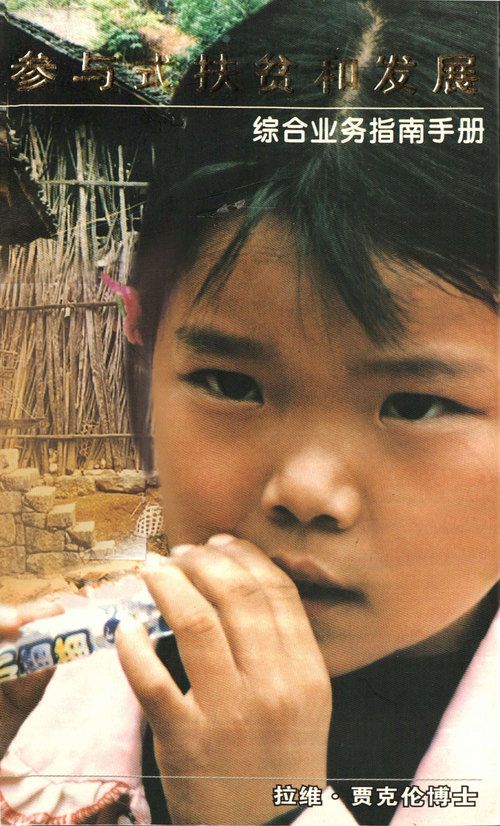
This is a comprehensive book on Participatory Poverty Alleviation and Development with examples and frameworks for development strategies from the author’s extensive experience in over 10 countries around the world.
The Ten Seed Technique (Chinese Version)
August 2002, World Vision International –China
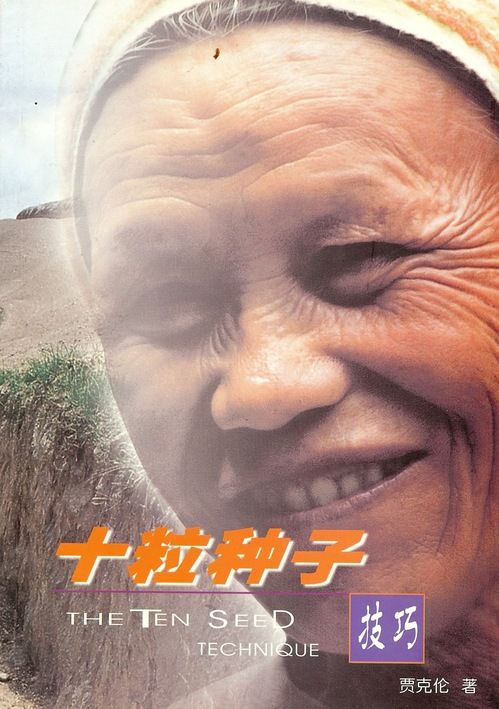
This book available from the author also in English, is a comprehensive description of the Ten Seeds Technique (TST) with multiple examples from the Peoples Republic of China.
Carrying out a rapid situation analysis at the District level for community capacity to respond to disasters (a resource manual)
July 2001, Asia Pacific Disaster Management Office, WVI , Manila
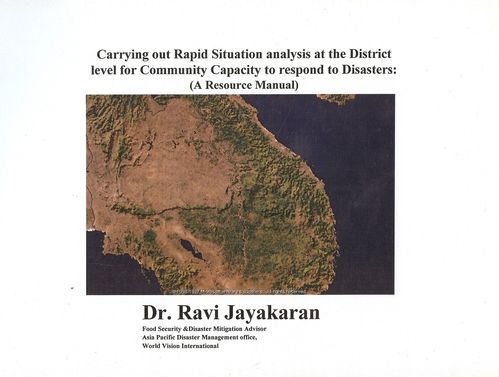
A user friendly manual designed to be a practical tool for project managers in disaster prone areas. The PLA tools described are simple ones that can easily be understood and practiced. Examples from Cambodia and the Peoples Democratic Republic of Laos.
Houses as indicators of Development
August 2001, Asia Pacific Disaster Management Office, WVI , Manila
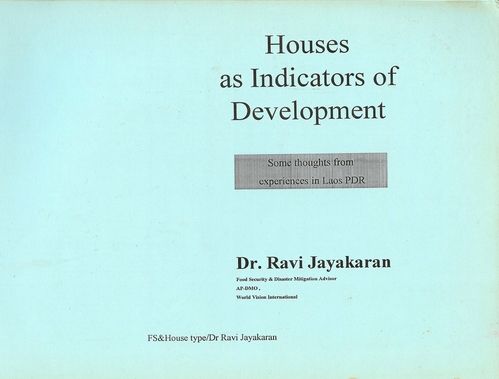
The food security status of a household is also manifest in the type of house the household has. This is another rapid way to assess the household food security status that the household has. This methodology was later developed into the RFSA – Rapid Household Food security status tool.
CBDM: Community Based Disaster Management
September 2001, APDMO , WVI –Manila
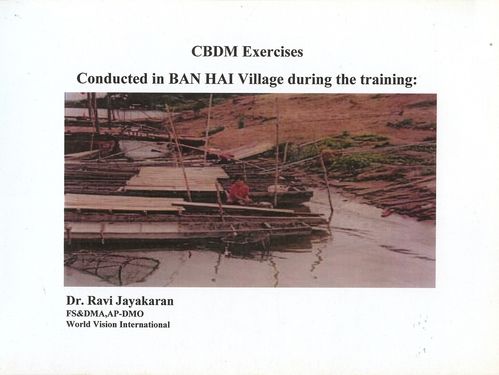
Research findings from Ban Hai Village on the Banks of the Maekong river in Laos PDR
The Ten Seed Technique and its scope and different dimensions of its use in Food Security Programming
September 2001, APDMO, WVI-Manila
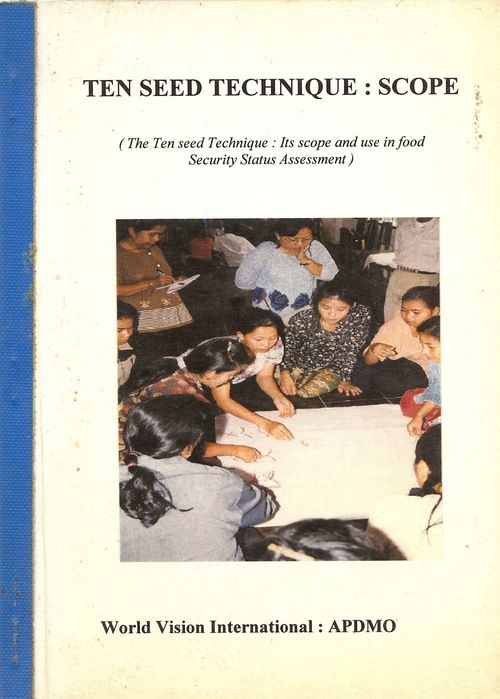
This is a detailed manual on the use of the TST for Food Security and development programs.
Use of PLA in Qualitative information gathering for effective HIV-AIDS programming
July 2000, World Vision International, Cambodia
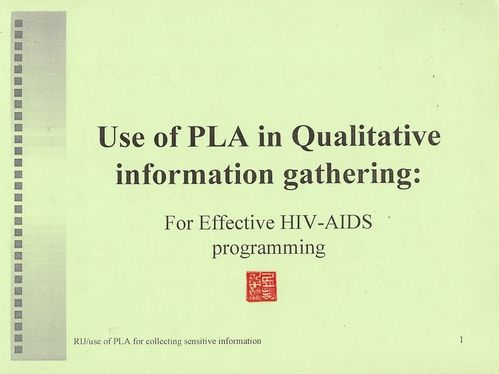
This is a record of new tools developed for use in FGDs while working for HIV/AIDS prevention programs.
Working with the Urban Poor
1998, World Vision India
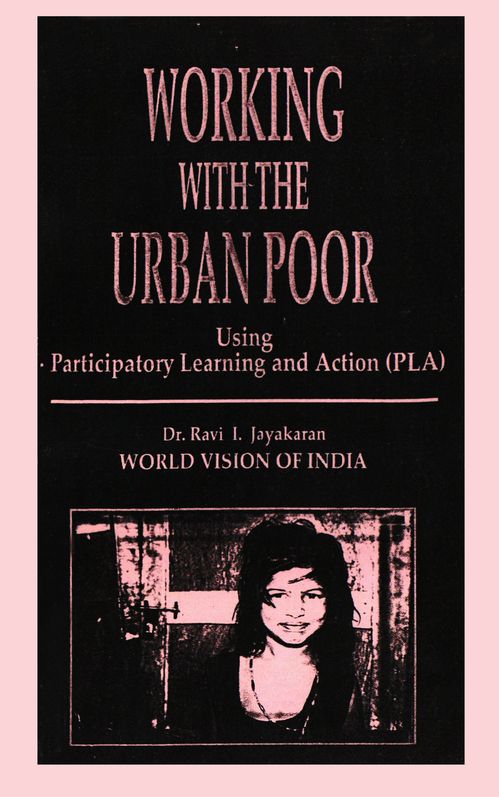
This book covers details on how to work with the Urban Poor who live in slums and ghettos and mobilize and engage them to participate actively in their development process. This was prepared in the late 90's for the National Institute of Urban Affairs (NIUA) in Delhi and also adopted for use in the urban programs in western India.
Making Holistic Disciples
1997, World Vision India
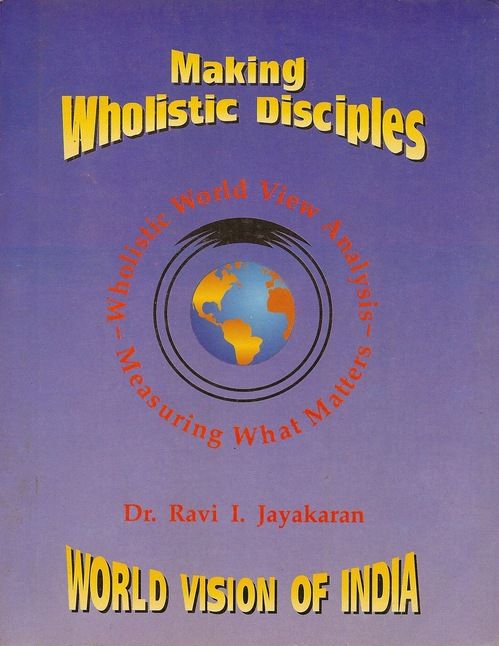
This book seeks to provide the readers with an understanding about how a Worldview develops in close correlation to the community’s survival strategy. The techniques mentioned enable one to carry out a Holistic Worldview analysis as well as measure what matters in effective christian Witness.
Small Enterprise Development
1996, World Vision India
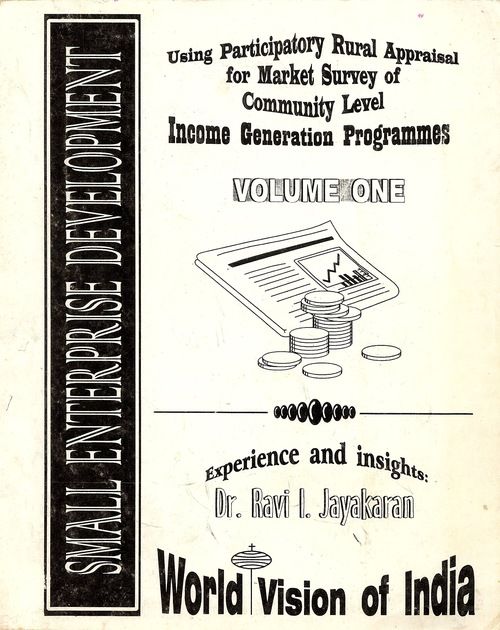
Sustainable Enterprise for income generation involves integrating it with the Supplies , Skills and Sales dimensions of the Enterprise. This is a collection of some of the profiles of simple enterprises and how to profile them.
Whom God has brought together
April 1988
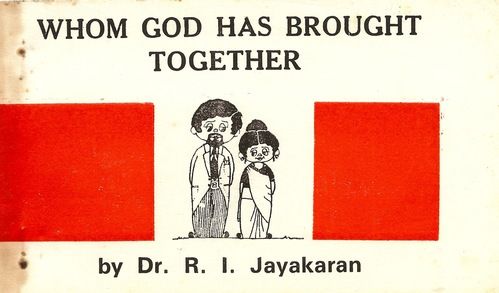
A brief booklet aimed at young people seeking God’s will related to Marriage and finding God’s will for their lives.
Participatory Poverty Alleviation and Development (English)
March 2011, Fuller Theological College, Pasedena, CAMay 2004, Maekong Institute, Khon Kaen, ThailandApril 2003, World Vision International China
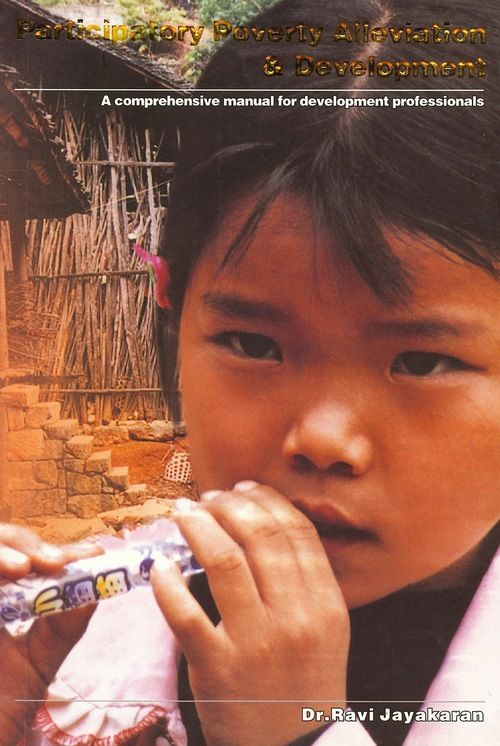
This is a comprehensive book on Participatory Poverty Alleviation and Development with examples and frameworks for development strategies from the author’s extensive experience in over 10 countries around the world.
A detailed analysis and Evaluation of the FAITH project
June 2005 , Tear Fund Cambodia
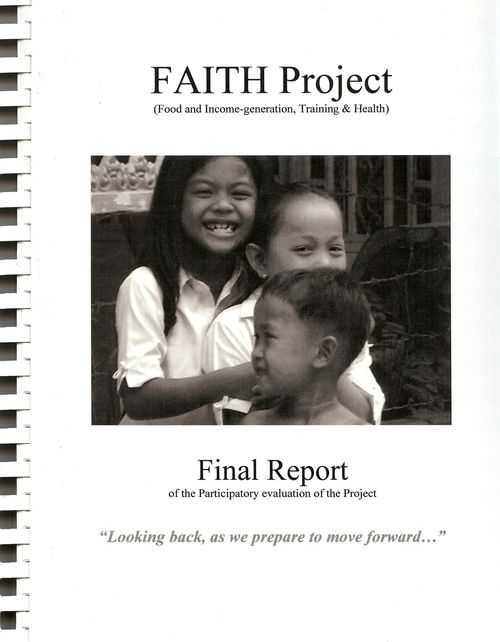
This is a detailed analysis of the FAITH project that later went on to become “Puniya Liuâ€, an organization for promoting Holistic Integrated development in Cambodia.
Facilitating Small Groups : (In Mandarin)
May 2003, World Vision International China Publication
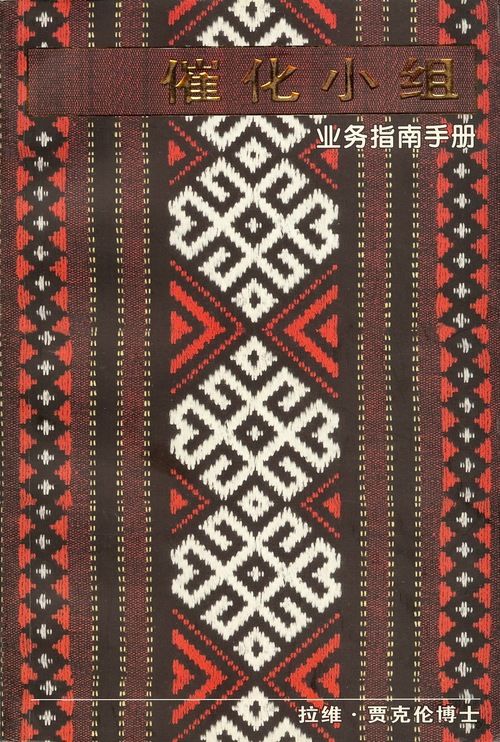
This is a resource book especially written for those in the field working for development programs of various kinds and interacting with special interest groups on health care, HIV/AIDS prevention, Agriculture development, NRM, Animal Husbandry, Literacy, Sponsorship, CEDC, Micro Finance, local self-government etcetra. The book focuses on how to work with and facilitate various groups.
The Ten seed Technique: learning how the community sees itself
Spring 2002, Child Survival Connections,USA
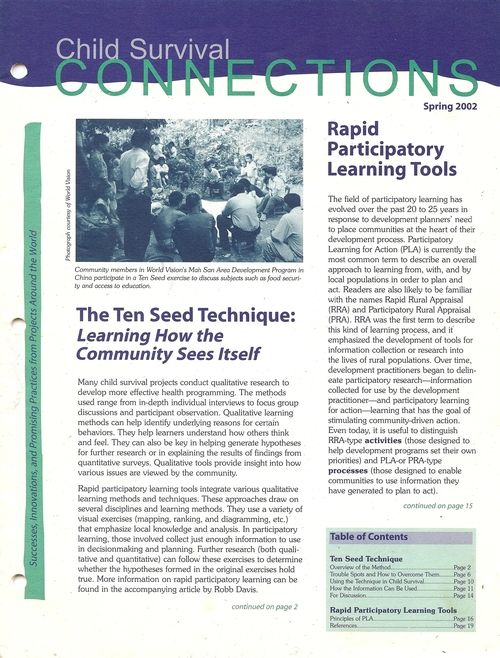
This issue of the Child Survival connections magazine focuses mainly on the use of the Ten Seed Technique in the context of Integrated community development and explains how it can be used in a variety of needs assessment situations.
The Ten Seed Technique
August 2002, World Vision International –China
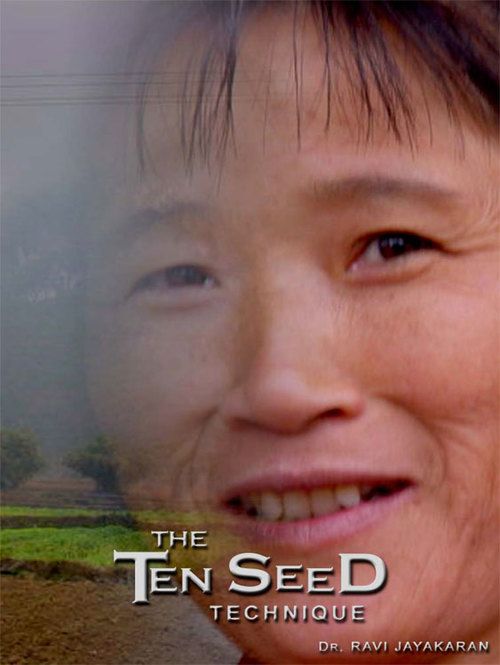
This book available from the author also in English, is a comprehensive description of the Ten Seeds Technique (TST) with multiple examples from the Peoples Republic of China.
Identifying the Most Vulnerable households in a community according to their Food Security Status
August 2001, World Vision International – APDMO, Manila
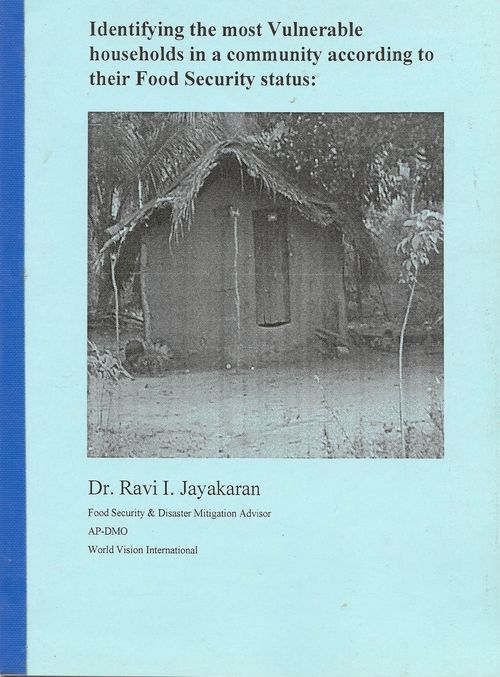
This booklet outlines the use of the TST in identifying the most vulnerable families in a community. It is step by step guide for practitioners.
The Ten Seed Technique and its scope and different dimensions of its use in Food Security Programming
September 2001, APDMO, WVI-Manila
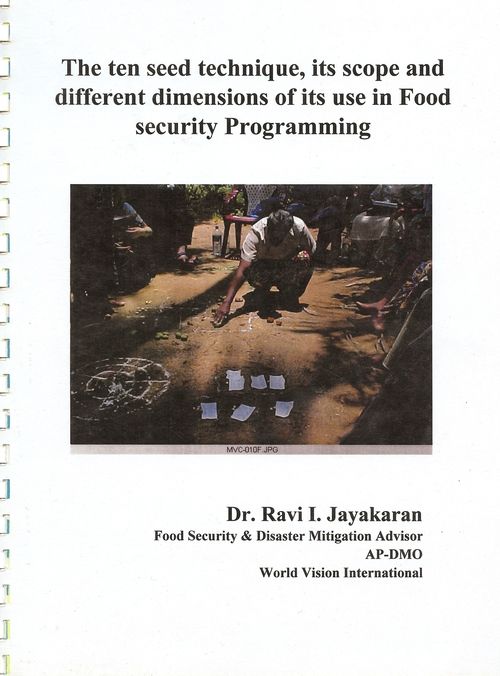
This is a detailed manual on the use of the TST for Food Security and development programs.
Final Report on the use of appropriate participatory tools for Rapid Assessment of Community Capacity for Disaster Management (studies from the areas affected by flooding of the Maekong river in Laos PDR and Cambodia)
September 2001, APDMO, WVI-Manila
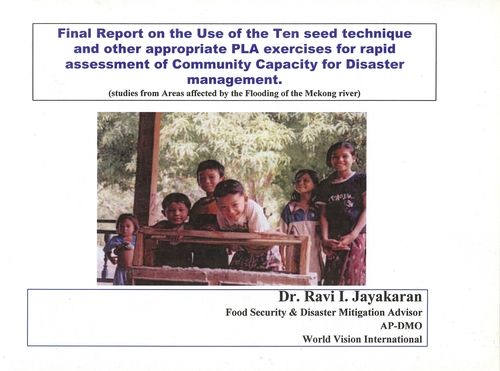
This is the final report of the research on CBDM- Community Based Disaster Management in the flood prone areas of the Maekong in Laos PDR and Cambodia.
Use of the TST and other appropriate PLA exercises for Rapid Assessment of Community Capacity for Disaster Management
September 2001, APDMO, WVI –Manila
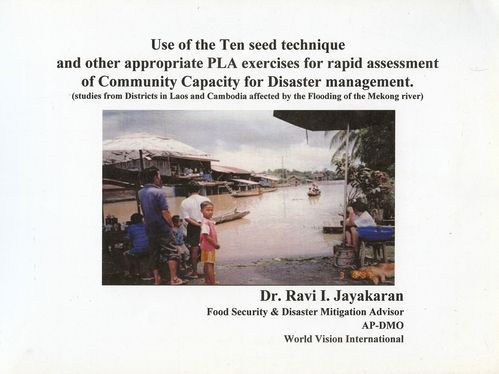
This research document focuses on the Participatory tools that are used for assessing the capacity of a community that lives in a disaster prone area to cope with disasters and rely on early warning systems.
Working with the Poor (co-author)
1999, World Vision International, CA
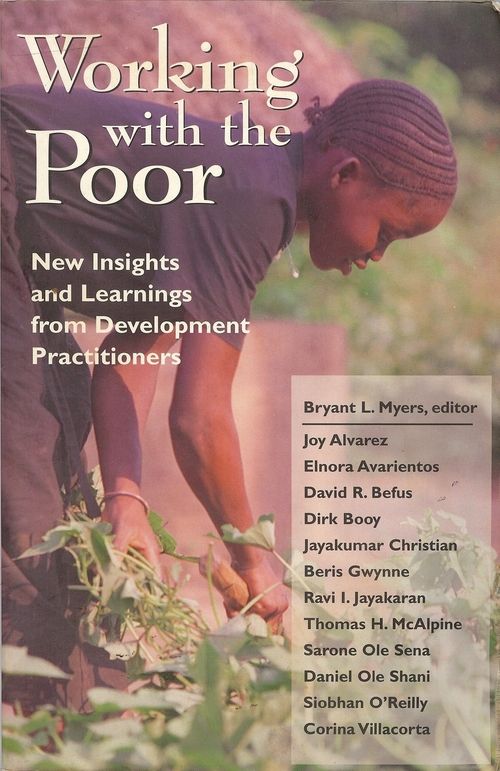
The book focuses on how Christian Practioners express authentically the issue of Holistic Transformational development. Among other issues the book focuses on understanding Poverty, Participatory Learning and Action, Appreciative Inquiry, the Bible and transformational development, sustainable economic development, community transformation in the Urban context and community development and peace building.
An Exploratory study of the Sexual Networking Patterns of Tribal communities in Navapur,MS ,India
March 1997, AIDSCAP, India
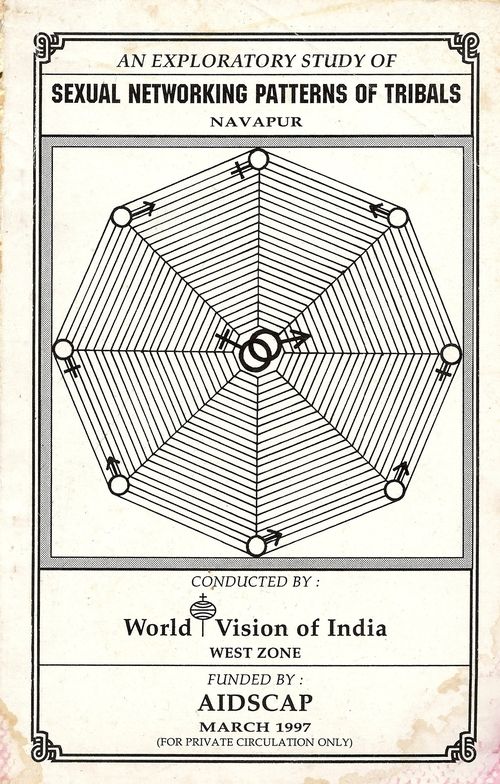
A comprehensive review of Sexual networking patterns of tribal communities in the Navapur Region of Maharashtra, explaining techniques and methodology for the research study.
Networking Patterns: Using PLA for finding out sensitive information
March 1997, World Vision India
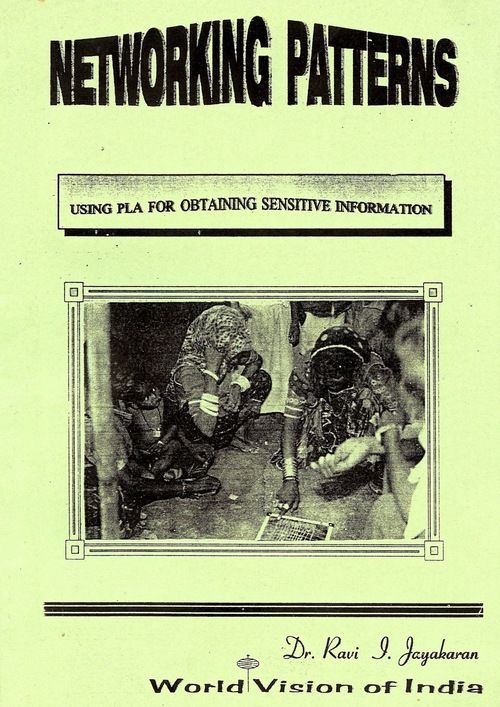
A collection of appropriate Participatory tools for collecting sensitive information related to HIV/AIDS and high risk behavior.
Participatory Learning and action (a five minute reference book)
February 1996, World Vision International - India
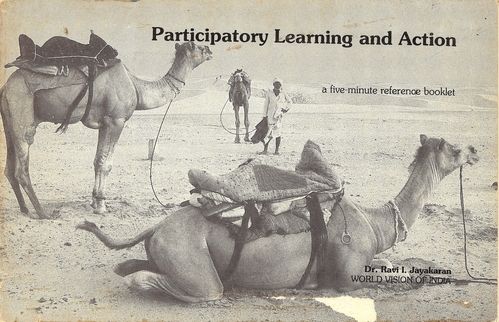
PRA has come to be used in recent times in a fairly large scale and for a variety of programs. It has been used effectively in Relief, Community development, Health programmer, Small Enterprise Development, Education, Agriculture, Micro watershed development, Animal Husbandry, Environmental development, Marketing, Forestry and Holistic Worldview analysis. This book provides a quick run through of the scope of PRA.
Family life
May 1987, UESI
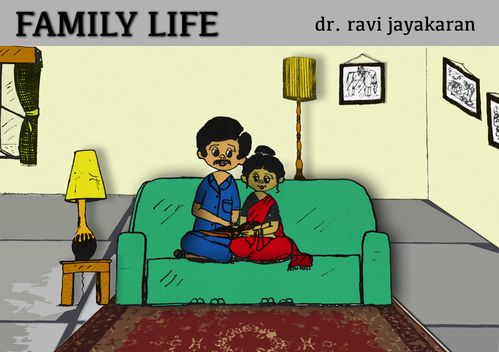
Life is made up of little things. This is especially true of Marriage and the important things that a couple experience as they learn from one another. Illustrated with cartoons by the author.